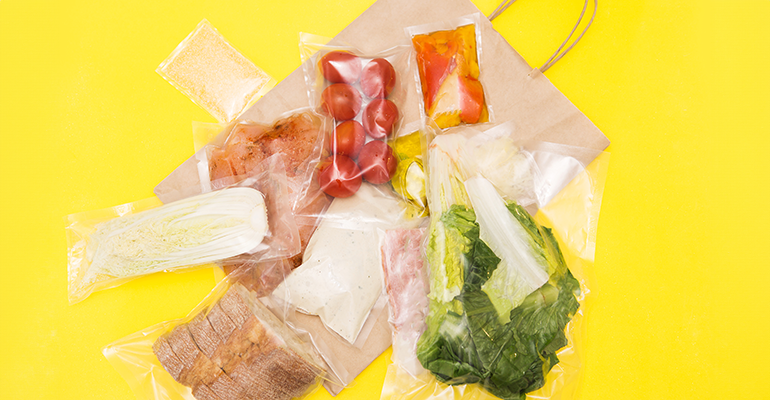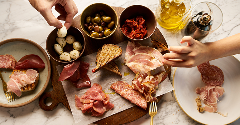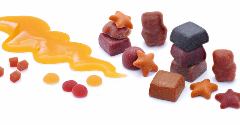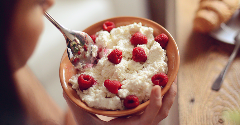News
Meal kits offer convenience, but do they deliver nutritionally?
3 Apr 2024A study examining the vegetable content of meal kit subscription services finds significant variations in quantity per serving, presenting an opportunity for brands to enhance their offerings with more veggies.
The proliferation of meal kit subscription services, in part due to the COVID-19 pandemic which saw the kits go mainstream, continues to grow across the globe. Marketed as a better alternative to eating out and a solution to the mental burden of meal planning, many people may assume that meal kits are inherently healthy.

The study out of Deakin University in Melbourne, Australia, suggests this assumption does not always hold. The team of researchers is urging consumers to take more consideration when choosing meals to ensure they are getting the most out of their kit: “We found when it comes to nutrition, whether it be budget-friendly or high-end, it’s more about the meals you choose and less about what company to use.”
Meal kits typically work through a subscription service. Every week you choose the number of meals and the number of servings you want. You chose from a variety of recipes that often change seasonally and include diverse cuisines and dietary preferences. A three-recipe-per-week meal plan from HelloFresh Australia for two people will set you back $70 (€42) and recipes found on the website include Italian beef and cauliflower-potato topped pie, Baja-style prawn tacos, and Indian sweet potato and lentil dahl.
The study focused on the meal kit market in Australia and analysed the vegetable content of 179 recipes across nine Australian-based meal kits. Across all analysed recipes, vegetables per serving ranged from 0.7 - 7.5 serves, with a median of 2.5 serves. One standard serving of vegetables is around 75 grams. Discussing their findings, the authors of the study said: “At first glance, this looks promising. But on closer inspection, the number and types of vegetables vary a lot.”
The wide variability in vegetable content suggests that not all meal kit recipes guarantee a nutritious meal. Legumes, despite being packed with nutrients, only featured in 10% of all recipes, and although all meal kit companies offered vegetarian-based meals, almost one-third of them contained fewer than two vegetable servings per person. In addition, approximately 50% of all recipes provided at least half of an adult's daily vegetable requirements in one meal, yet a significant proportion included less than two servings per person.
Dinner is an opportune moment to pack in the veggies
Dinner is typically when people consume most of their daily vegetables, therefore meal kits have significant potential to help individuals meet their vegetable requirements, especially considering the gap between recommended vegetable intake levels from the World Health Organization and the current global consumption, which tends to be lower.
The team offered tips for consumers to get the most nutrition from their meal kits: selecting more vegetarian options; choosing recipes with a minimum of three different types of vegetables; choosing those with unfamiliar or new vegetable options; and making healthy subtractions or additions to the meal such as reducing the amount of stock cubes and seasoning blends and adding in more vegetables and herbs.
Brands need to tailor their strategies based on the regions they serve
Beyond nutrition, brands can gain a competitive edge by prioritising sustainability. Meal kits are often delivered to the door in plastic packaging to maintain the freshness of the meals.
According to Mintel’s 2023 report on global innovations in prepared meals and meal kits, eco-friendly packaging is one tangible step brands can take to reduce the environmental impact of their kits, either through using biodegradable and compostable materials or reducing the amount of packaging materials used. Notpla, a company specialising in seaweed-based packaging, became certified as plastic-free by the Dutch government in 2023 and has partnered with Dutch food delivery company Thuisbezorgd to deliver a range of cardboard boxes lined with seaweed and other plant extracts.
Collaborating with influential figures within the industry is an approach brands can take to resonate with consumers. HelloFresh is a global leading meal kit brand with a US market share of 74%. In New Zealand, HelloFresh makes up only 57%, with competitor MyFoodBag comprising 38% of the market, according to Statista. One reason behind the success of domestic brand MyFoodBag may be the celebrity appeal. Nadia Lim, a household name in New Zealand and co-founder of MyFoodBag, is a nutritionist, celebrity chef, and winner of the second season of reality TV cooking show MasterChef NZ.
Another crucial aspect for brands is understanding the region they are serving. According to Mintel, European consumers are looking to reduce their meat consumption, which has resulted in brands offering meat-free versions of popular meals. The North American region has seen similar trends in reduced meat intake but has also witnessed a resurgence of animal protein in meal kit launches, particularly beef, and chicken. Mintel notes that most adults in North America include meat in their diet, and around one-third of consumers prioritise spending on animal protein.
Related news

UK Government overhauls childhood obesity strategy
21 Nov 2025
The UK Government has announced a new package of measures designed to reverse the nation’s childhood obesity epidemic following the release of statistics revealing the scale of the crisis.
Read more
Nitrites: Pressure grows on UK to follow EU’s lead
20 Nov 2025
Pressure is growing on the UK to follow the EU’s lead after the bloc revised its regulations on the permitted levels of nitrites and nitrates in cured meats.
Read more
From fruit to functional solutions: Meet Paradise Fruits at Fi Europe in Paris
13 Nov 2025
Paradise Fruits Solutions and Paradise Fruits Health will showcase their combined expertise in delivering innovative, fruit-based solutions to the food and beverage industry at the upcoming Fi Europe trade show (2-4 December 2025, Paris).
Read more
Danone highlights digestive health as potential ‘tipping point’ for food industry
13 Nov 2025
Danone is betting on a food industry “tipping point” that will bloat the market for healthy products, particularly those related to gut health.
Read more
Soy story: WWF scores UK supermarkets on sustainability efforts
12 Nov 2025
WWF has published its latest “Soy Scorecard”, ranking UK supermarkets’ efforts to combat deforestation and land conversion in their soy supply chains.
Read more
New UPF standard hoped to offer consumers ‘coherence and clarity’
10 Nov 2025
Ingredients companies are being urged to enter “a new era of partnership and innovation” following the launch of the industry’s first non-UPF verification scheme.
Read more
Whistleblowers accuse UK meat industry of promoting cheap, unsustainable supply
7 Nov 2025
An anonymous group of industry insiders has accused the UK’s biggest food companies of systematically driving down meat quality and welfare standards.
Read more
Cottage cheese makes a comeback as consumers call for cleaner labels
6 Nov 2025
From ice cream to dips and ready meals, cottage cheese is experiencing a renaissance as a high-protein, clean ingredient for health-conscious consumers.
Read more
Bord Bia presents Irish dairy ingredient suppliers at Fi Europe
6 Nov 2025
Dairygold Co-operative Society, The Carbery Group, and Ornua Co-operative: Meet with sustainable producers of Irish dairy ingredients at Food ingredients Europe 2025, Hall 7.2 Stand M18.
Read more
Ingredient quantities mislabelled on popular protein bars, independent tests show
5 Nov 2025
Some popular protein bars contain more fat, carbs, and/or sugars than claimed on their labels, independent nutrition testing reveals.
Read more